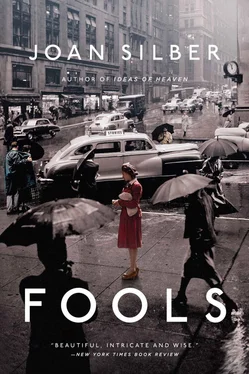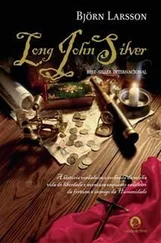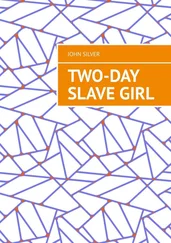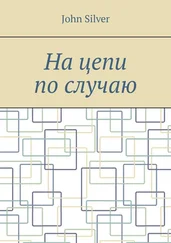Hello, Anthony, you don’t know me , the note said. It was not from Liliane. Your mother suggested I get in touch with you. I used to be married to her, long ago! Now I live in the 6th arrondissement. If you get this, come by to visit. It was signed Norman Remsen, with a phone number.
I knew full well who he was. The first husband, from her Bohemian youth. My mother always said he’d been wise to leave town before writing his memoir that offended everyone, certainly including her. So now he’d been enlisted to offer me a touch of home?
I wasn’t grateful. In my days and nights on the street, I took one step at a time and I could keep track of those steps. I had become stupid and literal and I liked it. I wasn’t ready to give it up.
Of course, the note made me think about my mother. In her “Village days,” as she always called them, my mother had lived in a big mess of an apartment with a bunch of other young paupers. “You wouldn’t believe the cockeyed food we ate,” she said. “Anything cheap.” Insofar as she mentioned the husband, she suggested he was an empty blowhard too precious to earn a dime.
And here was this man who’d had sex with my mother and been told I was a thief and wanted to see me. I remembered to be glad that my mother was worrying about me. I kept that thought.
Meanwhile, back at the Hôtel Dubois, I went out every day (I was a very steady beggar, no time off on weekends), and the hookers would see me at the café next door when I came in at night. Allo, cutie boy baby. They didn’t have much English and I could not have looked like a big spender to them, though one of them did offer a very low rate, in numbers I understood. She was still pretty, with tender skin, but her features had gone slack, loosened from their moorings. She spooked me: look at what she’d lost, to johns like she wanted me to be. The Swedish guy, whose name was Nils, said that Marx said prostitution was only a particular expression of the usual fate of the worker. She’d sold away something, anyone could see this, and who had it now, where was it?
Nils did help me buy a jacket at the flea market. He led me into block after block of awning-covered stalls selling sections of iron pipe, old petticoats, army helmets from who knew when — everything shed, left behind, spun off from the fat, fat world — and, at last, used coats. They smelled of dust and worse, but there was a navy wool peacoat that was only slightly too big for me. In the long mirror at the stall I saw myself, bony, red-faced, but better.
Once I had proper clothing, I seemed to feel I had to see this Norman person, who answered his phone in French. “I hope you’re having a very good stay,” he said. Oh, I was, I said, and he invited me for supper later in the week.
I was drunk when I showed up. How else could I have gone there? I mounted the winding stairs to his apartment on Rue Claude Bernard, dizzy on the turns. I smiled in my blurry way to see Norman, a bald guy with glasses, and the nice-looking Frenchwoman who turned out to be his wife, an aging gamine with wispy hair in a ponytail. “You’re here at last,” Norman said. I was an hour late.
The rooms were small and cluttered with bric-a-brac. They had a piano and a seashell collection and one of those Indian elephant-headed statues in green china. No wonder my mother moved on , I thought. “Just a light supper,” Norman said. “Nothing fancy.”
There was nothing to eat! Some slices of salami for our appetizer, a cream of broccoli soup, a bunch of watercress for salad. Where was the rest? And Norman, it turned out, talked a lot. “I hope you’ve noticed how great the vegetables are here. You have, right? Of course, we take them for granted. But we didn’t during the war. No, siree.”
I almost said, What war? “You were here all through it? With all the Germans?” I said.
“Not here!” he said. “Not in Paris! It wasn’t a good place to be a known anarcho-syndicalist.”
A what?
“We went to the south,” he said. “Josette has family in the south.”
“Very nice to stay with them,” Josette said. “More nice to come home.”
Josette was a kindergarten teacher, so she had gotten work again right away. But Norman, who said he “wrote for some English newspapers,” had had more trouble. But now was better. Now? The war had been over for seventeen years.
“A person misses Paris,” Norman said. “So how long are you staying?”
“Forever,” I said.
“So what do you do all day?” Norman said.
“The sightseeing gets old, but I’ve met a lot of great people,” I said.
Josette said, “When you’re young, you’re free, you can see everything.”
On the way back from taking a pee in their itty-bitty bathroom, I passed the big elephant-god statue on a table. It had a few coins lying around it — a fifty-centime piece and two francs — and I thought about plucking them out, but I didn’t.
“One of my friends,” I said, as I sat back down, “has a chateau on the Loire and I’m going up there for New Year’s. Big grand ball in the castle. Should I bring a gift, do you think?”
Norman, who was carrying in a bowl of fruit, looked at me hard. “Great pears this year,” he said. “Your mother always liked fruit.”
“At the hotel we have this gigantic orange tree that grows right up through the lobby. And we imported nightingales to sing in it.” I made this up.
Josette was setting out little plates with dainty knives and forks. Maybe we were getting a cheese too? We weren’t.
“Your mother would think we were sorry fools, the way we live,” Norman said.
“Oh, no!” I said.
“Your mother thought the world was made of winners and losers. We didn’t agree on that.”
Pretty clear what side she thought Norman was on.
“I hate the way Americans use the word loser now,” Norman said. “They mean someone who’s doomed because he won’t push or grab or steal.”
Josette, in her niceness, went to the kitchen and brought out a bottle of brandy to go with the pears.
“Let’s drink to the superiority of losers,” Norman said. So we did.
After a while, it was natural for me to get drowsy in my chair. Josette, with her accent, was talking about Algeria and the Left and I hoped no one would notice if I shut my eyes. I woke up at one spot and said, “No! France is not free, it’s expensive!” I was making a joke. Josette might even have laughed.
I woke up when they were lifting me to my feet and leading me into the back seat of a very small car, which turned out to be theirs. Next thing I knew we were in front of the Hôtel Dubois, with its orange neon sign, though I didn’t remember saying where I lived. I forgot how to get out of the car and they had to unpeel me and I hung between them going through the door. “Good night, dear hearts and gentle people!” I said as I headed toward the stairway. Past the first landing, I kept stumbling on the steps that went on forever and I was annoyed they’d left before helping me to my room, wherever it was.
The next day I thought, Oh, shit, another burned bridge. Dear Betsy, Your son is a worthless turd. I got myself together to go for coffee at the café next door but I didn’t even have enough money for that. Why hadn’t I swiped those coins near the statue?
I saw then that I was going to keep getting worse. Already I was someone I wouldn’t want to sit next to. The number of activities beneath me was getting less and less.
The next day turned out to be Christmas, and I slept through most of it (stupid, on a day so profitable for panhandlers), and at nightfall I showed up at Norman’s with my clarinet. When he opened the door, I played an excellent, jazzy version of “God Rest Ye Merry Gentlemen.”
Читать дальше












